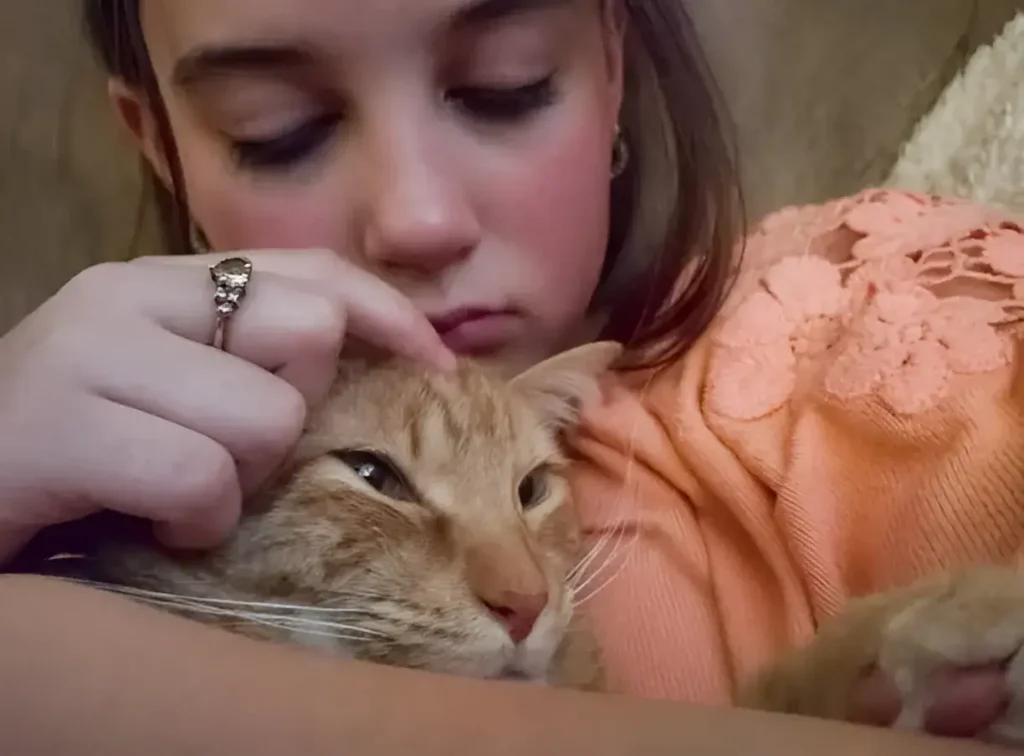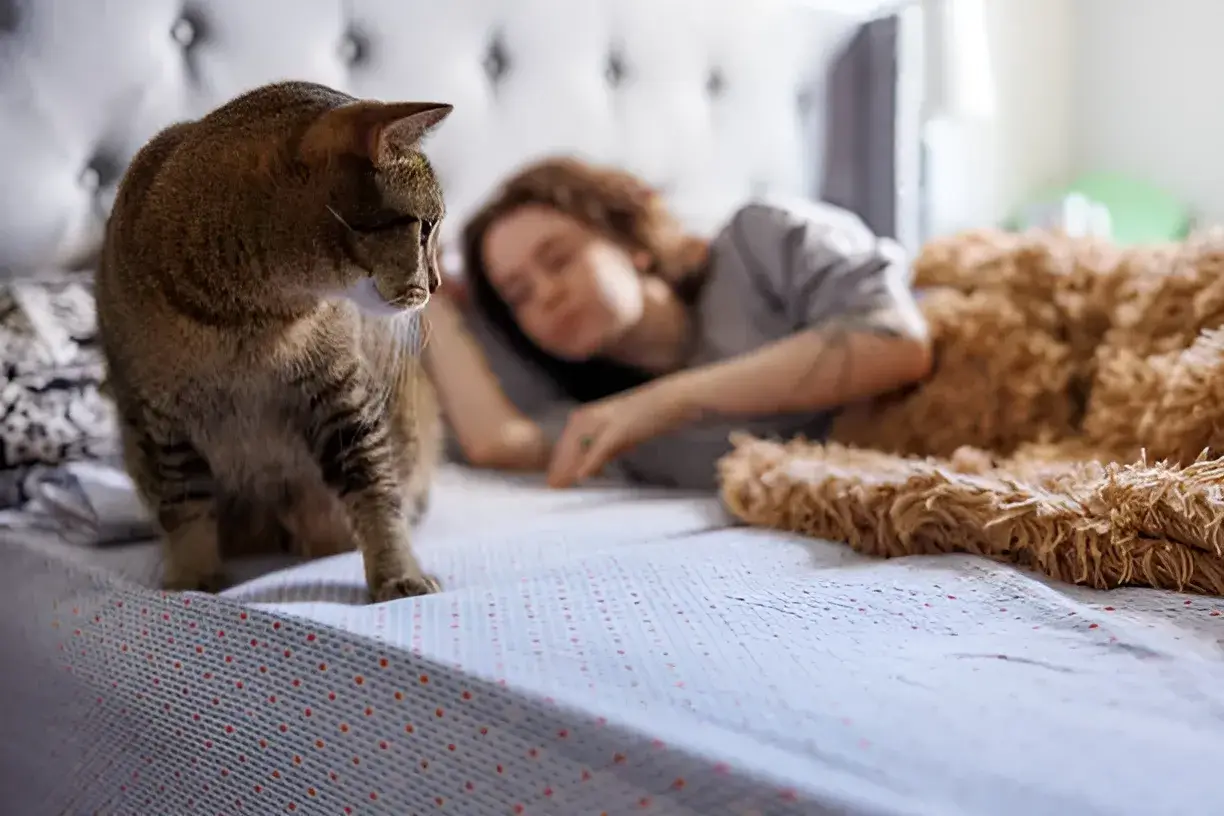Yes, cats can often sense when their humans are sad. While they may not understand the complexities of human sadness, they are highly attuned to changes in your behavior, voice, and even your scent – all of which can signal emotional distress.
How Cats Perceive Your Sadness
1. Body Language Cues: Cats are masters of reading body language. Slumped posture, a downcast gaze, and slower movements are all signs your feline friend may recognize as something being “off.”
2. Change in Vocal Tone: The pitch and cadence of your voice alter when you’re sad. Cats are sensitive to this, and the shift might indicate to them that something isn’t quite right.
3. Shift in Scent: Humans produce subtle changes in body chemistry when emotions fluctuate. Your cat’s powerful sense of smell might pick up on these olfactory cues.
How Cats Might Respond
1. Comforting Behaviors: Many cats instinctively respond to sadness by offering comfort. This might include increased purring, cuddling closer, head-bumps, or gentle grooming.
2. Increased Attention-Seeking: Some cats may become more vocal or try to engage you in play or interaction when they sense you’re down. This could be their way of trying to lift your spirits.
3. Mirroring Your Mood: Cats are sensitive creatures, and in some cases, they might seem to reflect your sadness. They might become withdrawn, less playful, or show changes in appetite.
4. Unusual Behaviors: Each cat is unique. Don’t be surprised if your feline acts out of character when they perceive sadness. Changes in routine or habits might be their way of reacting.
The Science of Cat Empathy

While research is ongoing, studies suggest cats can distinguish between human emotional expressions. It’s believed this ability arises from their social nature and the need to understand the moods of those around them. However, attributing complex human emotions like grief or depression directly to cats may be an oversimplification.
Not All Cats Respond the Same Way
Several factors influence how a cat responds to your sadness:
- The Strength of Your Bond: Cats who share a deep connection with their humans are more likely to be attuned to their owner’s emotions.
- Individual Personality: Some cats are naturally more empathetic and responsive than others.
- Breed Variations: Certain breeds may have a stronger predisposition to be in tune with human moods.
- Environment: A stressed or anxious cat might have a reduced capacity to perceive and respond to your sadness.
Helping Your Cat Understand Your Emotions
1. Build a Strong Bond: Spend quality time with your cat, play with them, and establish a consistent routine. The closer you are, the more attuned your cat will be to your emotional states.
2. Clear Communication: Even if they don’t fully grasp your words, talking to your cat in a calm, reassuring tone when you’re down can be soothing for both of you.
3. Reward Positive Interactions: Reinforce comforting behaviors with treats and praise, so your cat associates being near you during sadness with positive outcomes.
Conclusion
While cats may not understand the nuances of human sadness, their astute senses and social intelligence allow them to pick up on signs of emotional distress. Each cat will respond in their own way, but the bond between a cat and their human can open the door to surprising displays of empathy and support.
The photo featured below the post headline is Credit: Alex Potemkin/Gettyimages
I hope you find this post helpful and informative. If Yes’ feel free to share it with your friends!
Frequently Asked Question
Do all cats sense sadness?
Most cats have the potential, but the strength of their response might vary.
Can cats understand depression?
Not in the same way humans do, but they may react to the long-term changes in behavior depression can cause.
Can cats help with sadness?
While not a substitute for professional help, the companionship and comforting presence of a cat can provide solace during difficult times.
Do cats understand when you cry?
Cats might not fully grasp the emotional meaning of tears, but they are sensitive to changes in your facial expression, body language, and vocal tone when you cry. This signals to them that something is wrong.
Do cats get clingy when you’re sad?
Some cats do become more clingy when they sense their human is sad. This is likely their way of trying to provide comfort and support.
Why does my cat comfort me when I cry?
Your cat comforts you when you cry because they’ve built a deep connection with you. They sense your emotional distress and, in their own way, try to ease your discomfort or lift your mood.

